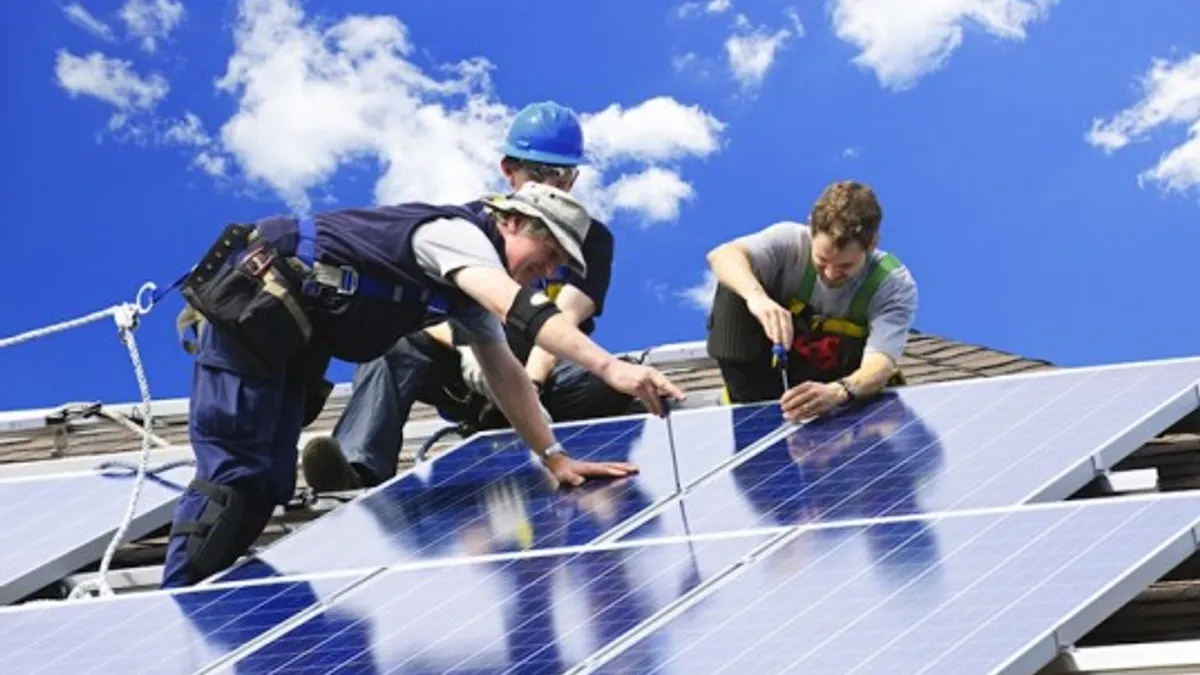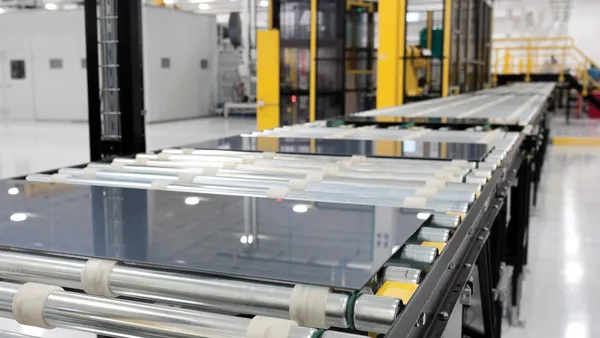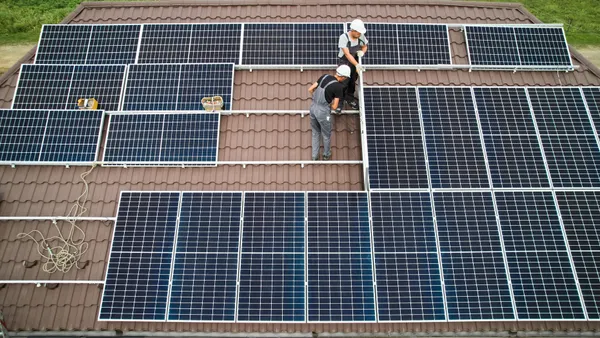Dive Brief:
- A Republican senator in Indiana has introduced a bill to end net metering by 2027, replacing it with a system requiring solar customers to sell all the energy they produce to the utility,and purchase it back as needed.
- A previous attempt to cut net metering failed to reach a vote after solar advocates objected and called for more study last year.
- But Indianapolis Business Journal reports net metering in the state could end sooner as participation is capped at 1% of investor-owned utilities' summer peak. All of the state's utilities have room left in their programs.
Dive Insight:
The state's solar industry is still in the early stages—Indianapolis Power & Light, for example, has only about 100 customers—and none of the utilities are close to reaching their net metering cap. But advocates and the solar industry worry new restrictions could kill the growth before it really gets started, while utilities say the current system unfairly burdens non-rooftop solar customers with extra costs.
It is a familiar debate for anyone watching the solar industry, and not the first time lawmakers in Indiana have take it up. A 2015 bill aimed to lower the payback for net metered solar and allow Indiana utilities to add new bill charges. IBJ notes the bill was pulled before it could reach a vote, with Speaker Brian Bosma saying the measure was “a little weighty.”
That bill would have allowed utilities to establish both a fixed monthly charge for solar system owners’ bills and rules for DG interconnection that could have resulted in interconnection fees. The new proposal would shift from net metering to a sell-all/buy-all system.
Under the new proposal, Senate Bill 309, solar customers would sell all of the power they produce at a wholesale rate of about $0.03/KWh, and purchase the power they need at $0.11/KWh. The balance would go towards the utility's cost of maintaining the grid.
According to the bill, state regulators would approve a rate to purchase customer generation using one of two calculations: either a rate equal to the average marginal price of electricity paid by the electricity supplier during the most recent calendar year, or the direct costs of generating or purchasing electricity that the electricity supplier will avoid by purchasing distributed generation. After June 30, 2027, "an electricity supplier may not make a net metering tariff available to customers," according to the bill.














